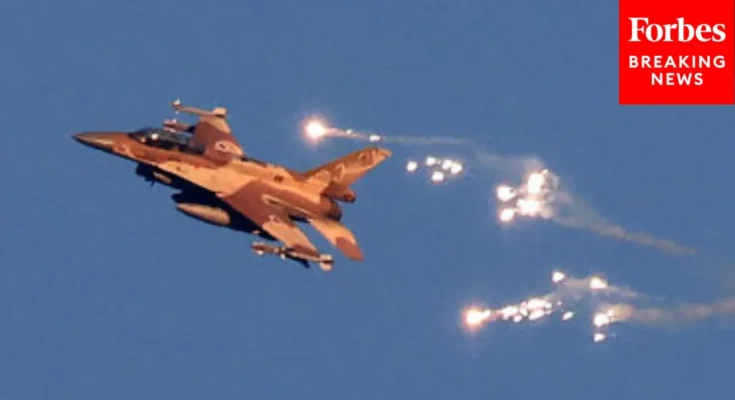Israel and Hezbollah militants exchanged a series of rockets and airstrikes across the Israel-Lebanon border. Fuel your success with Forbes. Gain unlimited access to premium journalism, including breaking news, groundbreaking in-depth reported stories, daily digests and more. Plus, members get a front-row seat at members-only events with leading thinkers and doers, access to premium video that can help you get ahead, an ad-light experience, early access to select products including NFT drops and more:
Details of the Clash: The violence erupted late yesterday and intensified through today, with both sides engaging in sustained and heavy artillery and rocket fire. Israeli Defense Forces (IDF) have reported a series of rocket attacks launched from Lebanese territory targeting northern Israel, including several key towns and military outposts. In response, the IDF has carried out extensive airstrikes and artillery bombardments aimed at Hezbollah strongholds in southern Lebanon.
Casualties and Impact: The current exchange has led to numerous casualties, including civilian injuries on both sides of the border. In Israel, there have been reports of damage to homes, schools, and infrastructure, with emergency services working to manage the fallout from the rocket attacks. In Lebanon, the airstrikes have caused substantial damage to residential areas and public infrastructure, leading to significant disruptions in daily life. The Lebanese Red Cross has been active in providing medical assistance and evacuating injured civilians.
Political and Military Reactions: The escalation has prompted immediate reactions from political leaders. Israeli Prime Minister [Prime Minister’s Name] has condemned the rocket attacks as a clear act of aggression and has vowed to continue military operations until security is restored. Hezbollah, led by Secretary-General Hassan Nasrallah, has defended its actions as retaliation for what it claims are Israeli provocations and violations of Lebanese sovereignty.
International Community Response: The international community is expressing deep concern over the conflict. The United Nations has called for an immediate ceasefire, urging both sides to de-escalate and engage in dialogue to address the underlying issues. The UN Secretary-General [Secretary-General’s Name] has appealed for restraint and has offered to mediate negotiations to prevent further violence. Meanwhile, regional powers and global leaders are closely monitoring the situation, with some calling for increased efforts to stabilize the region.
Future Outlook: Analysts warn that this latest round of violence could have far-reaching consequences for regional stability and peace efforts. The situation remains fluid, with ongoing clashes and no immediate resolution in sight.


